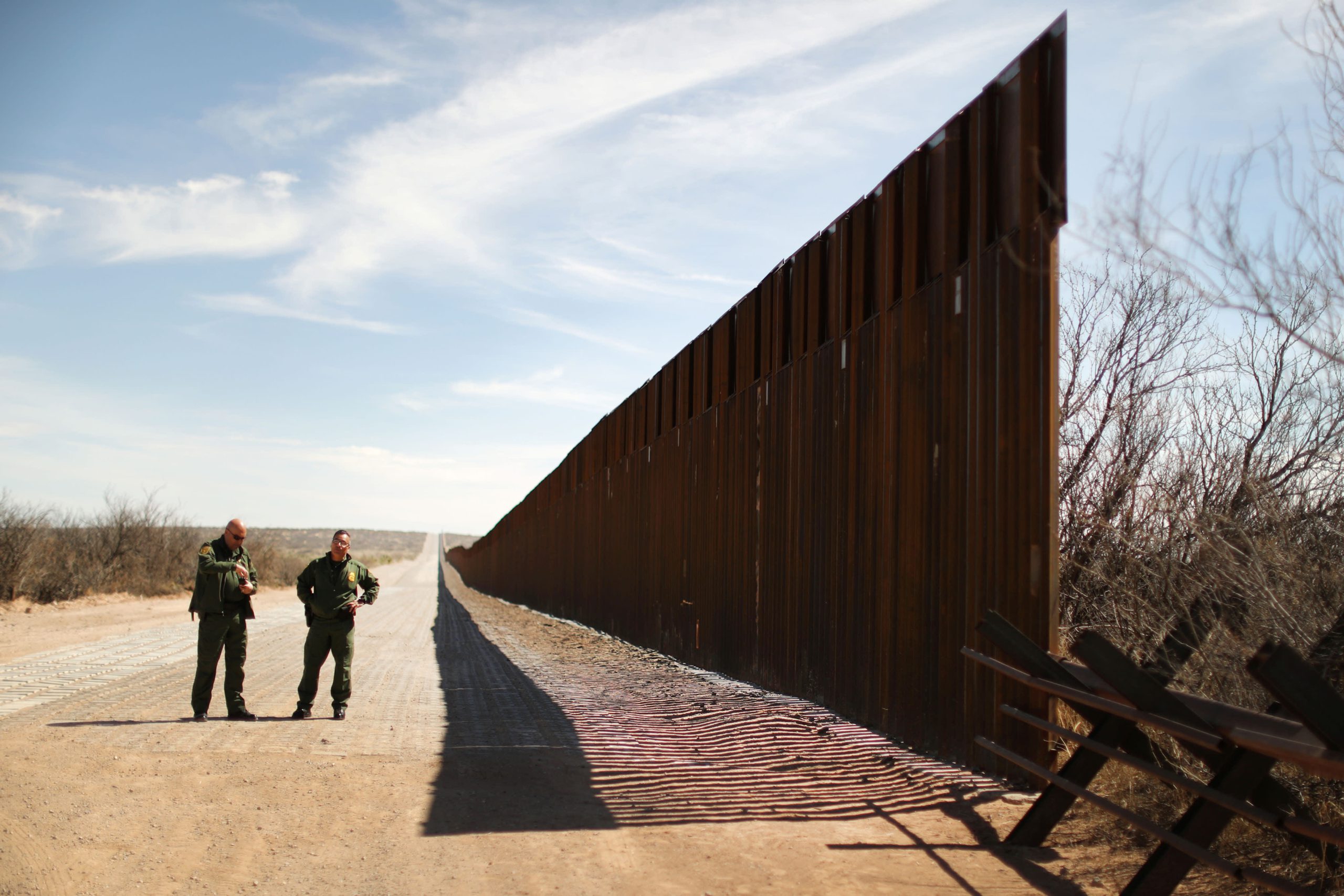PUBLISHED WED, MAR 20 2019 11:52 AM EDT
UPDATED WED, MAR 20 201912:42 PM EDT
Ylan Mui
The White House is targeting a windfall from an international banking scandal to help pay for the border wall, according to an administration official.
French bank Societe Generale struck a deal with the U.S government in November to pay $1.3 billion after admitting that it violated U.S. sanctions on Cuba and Iran for years.
The administration is hoping to funnel as much as $359 million from that settlement to a special account at the Treasury Department to fund the wall, the official says.
Lucy Nicholson | Reuters
The White House is targeting a windfall from an international banking scandal to help pay for the border wall, according to an administration official.
French bank Societe Generale struck a deal with the U.S government in November to pay $1.3 billion after admitting that it violated U.S. sanctions on Cuba and Iran for years. The administration is hoping to funnel as much as $359 million from that settlement to a special account at the Treasury Department to fund the wall, the official said.
Yet it’s unclear whether the White House can use the money for the wall. The Treasury account — known as the asset forfeiture fund — is made up of cash, property and other items seized during civil and criminal investigations. Use of the funds is restricted by federal law, and the account itself is a lightning rod for criticism, with both conservatives and liberals calling it an example of government overreach.
In its 2017 annual report, the fund listed total assets worth $4 billion.
“Fundamentally, this is a slush fund of money taken from private citizens that law enforcement officials are allowed to use for their own purposes,” said Robert McNamara, a senior attorney with the libertarian Institute for Justice.
President Donald Trump declared a national emergency at the border in an effort to build the wall largely without congressional approval and funding. Instead, the administration is attempting to cobble together $8 billion from spending that has already been authorized this fiscal year.
About $3.6 billion will be drawn from previous allocations for military construction. Another $2.5 billion would come from counter drug activities at the Defense Department. The spending deal that Congress passed in January also included $1.4 billion for fencing and other structures. Another $601 million from Treasury’s asset forfeiture fund would fill the gap.
According to the administration, about $242 million is already available in the fund. The remaining $359 million will come from “future anticipated forfeitures” — notably the settlement with SocGen. Two administration officials said the bank’s forfeiture is still awaiting final court approval.
But another person familiar with the settlement said SocGen has finished making its payments, with the funds split among federal and state authorities. It is unclear exactly how much was destined for Treasury or the forfeiture fund.
The fund’s assets are typically used to reimburse other agencies and state and local governments for their work in the investigation. The money may also go to informants or victims in the cases.
The fund’s annual report says any money left over after accounting for operational costs for the next fiscal year can be earmarked for “strategic support” and made available for “any law enforcement activity.” Whether that includes the president’s border wall is up for debate.
“If Congress is supposed to be in charge of appropriations, we shouldn’t be setting up funds that the executive can self-fund based on how many people it shakes down,” McNamara said.
Other attempts by the administration to pinpoint a pot of money for the wall have been met with resistance. Early reports that the White House was considering using disaster money did not sit well with Republican lawmakers such as Rep. Kevin Brady, whose Texas district was hurt by Hurricane Harvey.
Now, Democrats are slamming plans to use money intended for military construction to build the border barrier. In response to a letter from top Democratic senators, the Defense Department said it would not divert funding from military housing, barracks and dorms. Only projects with award dates after this fiscal year would be affected, the department said.
“More than $10 billion of other top priorities that the military and their families have requested over the last several years is on the chopping block to placate the president,” Sens. Dick Durbin, Patrick Leahy and Brian Schatz said in a joint statement this week. “This madness will not stop until more of our Republican colleagues are willing to put the military ahead of party politics.”
Last week, the House and Senate passed a resolution to block the national emergency, but Trump vetoed it Friday. His declaration faces an uncertain future in the Democrat-controlled House, which will vote on whether to override the veto later this month. The Senate does not appear to have enough support to overturn the veto.



